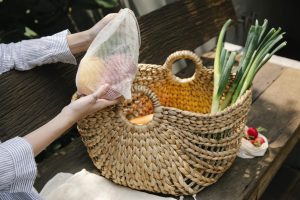Plastic has been around for a long time. They are made from fossil fuels, consume energy only to be discarded, pile up in landfills, clog our oceans, and contaminate food chains. As a result, they represent everything that is wrong with how we treat our planet.

On July 3rd, the world observes International Plastic Bag Free Day. It is regarded as one of the most significant international holidays because it draws attention to a major issue in today’s society: single-use plastic.
In other words, it is an initiative to encourage people to switch to more environmentally friendly products instead of plastic ones.
Plastic is expected to persist in the environment because it is not biodegradable. Many of them pollute the environment, and it’s not surprising. Every year, we produce 300 million tonnes of plastic waste, with an estimated 8 million tonnes ending up in the sea. Some of it collects to form “trash islands in the sea.”
Decomposition of Plastic Bags
The decomposition of plastic bags may take longer than expected. Every year, approximately 500 billion plastic bags are used around the globe, which is roughly one million bags per minute. The majority of us use the thin plastic bags we see at almost every retailer we visit on a daily basis. Whether we’re buying groceries or other necessities, we almost always leave the store with a plastic bag full of items.
When you get home, you usually remove them quickly and discard the wrapping. But we never think twice about those plastic bags. Have you ever thought about how many we go through in a year?

Aim of Plastic Bag Free Day
Plastic Bag Free Day aims to educate people about how we harm the environment while also providing a simple solution. I believe most of us would name global warming, deforestation, and air pollution as our top three environmental concerns. Pollution from plastic is unlikely to become one of our top five priorities, and it is widely assumed that it only harms aquatic species and animals, but it has entered the food chain.
It is high time to begin raising awareness about the most common problem caused by the use of disposable items. We should be aware that the bags we buy at stores are only used for a short period of time before being discarded. Plastic bags can last between 100 and 500 years before completely decomposing, leaving a significant environmental impact.
In other words, every time we pollute the environment, we should remind ourselves. And others that our actions have an impact on everyone. If we can pull it off on this one day, surely we can pull it off the rest of the year?
Make Every Day A Plastic Free Day
But why should we confine ourselves to a single day? Rather, we should start celebrating it daily by shopping with paper bags instead of plastic bags. Every store should start making cloth bags instead of plastic bags, and every customer should use reusable shopping bags made from canvas or other eco-materials.

Additionally, you can organise events, network with people nearby, join groups, and volunteer. This way, you can socialise with people who are members of the plastic-free association. And then participate in several activities on the plastic bag free day.
People can also start giving DIY tutorials on how to make your own bag. And design it to your liking on International Plastic Bag Free Day. As an alternative to plastic bags, many organisations have begun to produce canvas grocery bags and tote bags. Many big fashion brands have also shifted to sustainability by experimenting with eco packaging as a way to protect the environment. Dzukou, a Dutch lifestyle brand that primarily deals with well-designed products made from eco-materials, also supports plastic-free packaging of their products by using only paper-based and biodegradable materials.
There is another way which includes plastic recycling, which entails recovering both material and energy from discarded products. As consumers, we can greatly aid this process by separating waste and attempting to group similar-colored materials so that recycling takes as little time as possible.
Conclusion
It is now up to us to decide between the planet and plastic. With this knowledge in hand, let us band together to begin saving our planet by making it more sustainable for future generations.





